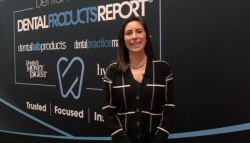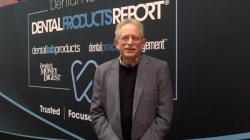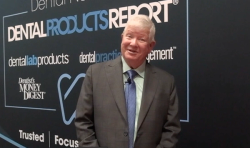- About Us
- Advertise
- Editorial
- Contact Us
- Terms and Conditions
- Privacy Policy
- Do Not Sell My Personal Information
© 2025 MJH Life Sciences™ and Dental Products Report. All rights reserved.
Why 5 of the Pride Institute "Best of Class" Technology Award Winners Stand Out
There is no group of products quite like the “Best of Class” honorees, in large part because it would be almost impossible to recreate the process by which they were selected.
There is no group of products quite like the “Best of Class” honorees, in large part because it would be almost impossible to recreate the process by which they were selected.
Chosen by a distinguished panel comprised of some of the most forward looking dentists in the industry, this year’s winners were narrowed down through lively debate and discernment.
In each issue between now and October we will highlight a handful of the 18 honorees. You’ll find both general information about the product as well as feedback from one of the panelists on what helps the product stand out in its competitive set.
Interviews, education and hands-on demonstrations at the “Best of Class” Technology Fair at this year’s ADA Annual Session in San Francisco will allow you to experience each product on your own and decide if it’s a good fit for your practice.
Millennium Dental Technologies’ Periolase MVP-7
The Panelist’s Perspective:
Dr. Marty JablowQ: How did you first find out about this product?
A: I first encountered the product while at the Chicago Midwinter Meeting.
Q: Describe the situations in which you’ve seen the product in use.
A: I was given a demonstration of the tablet interface.
Q: In light of the product’s performance in these situations, what, in your opinion, sets it apart in the industry?
A: The use of an Android tablet computer allows for PerioLase MVP-7 to enable new display device integration and upgrades without the purchase of a new laser.
Q: If you had to summarize why a dentist should purchase this product or switch to this product, what would you highlight?
A: The new streamlined user interface increases usable display space to allow the doctor to focus on the clinical procedure, benefitting from the intuitive operating controls and engaging graphics.
The 360° mounting system, wide range viewing angle and increased flexibility of laser placement in the operatory work to increase clinician comfort during the procedure. The ability to upgrade the laser controls also reduces the down time of the laser.
BIOMET 3i's BellaTek Encode Impression System
The Panelist’s Perspective:
Dr. Parag Kachalia
Q: How did you first find out about this product?
A: I first heard about 3i’s BellaTek Encode abutment more than 5 years ago at a conference and at first I thought it was too good to be true. It was simply amazing that the BellaTek Encode abutment was able to precisely convey the three dimensional position of the implant fixture, and streamline the restorative workflow.
Q: Describe the situations in which you’ve seen the product in use.
A: I have been involved with cases using both traditional impressions of the BellaTek Encode abutment as well as digital impressions. The beauty of each of these scenarios is that once the surgeon places the BellaTek Encode healing abutment, it stayed in place until the final restoration was ready to deliver.
Q: In light of the product’s performance in these situations, what, in your opinion, sets it apart in the industry?
A: The beauty of the BellaTek Encode healing abutment is really in its simplicity. The same technology can be used for both digital and traditional impressions. This feature allows the healing abutment to go on at the surgery stage and removal happens upon the delivery stage. There is no need to place a separate scanning abutment, which is used in some competing systems. Being that the implant site is manipulated less often, I would expect to see a better long term soft tissue response.
Q: If you had to summarize why a dentist should purchase this product or switch to this product, what would you highlight?
A: First, the system allows for a streamlined workflow for the restorative dentist without sacrificing accuracy for the patient. Second, the technology is easy to use and does not require a great deal of training. And finally, there is essentially no additional investment that needs to be made to use the technology.
Bien-Air MCX Motor
The Panelist’s Perspective:
Dr. Paul Feuerstein
Dentists have had a choice of air turbine vs. electric handpieces as well as some combinations such as the DENTSPLY ATC. One common complaint is that the motor and attachment are heavy, long and bulky and it “takes a while” to get comfortable with them. Companies have tried hard to center the balance point and change materials to address this issue. The advantage of constant torque and precise speed control as well as concentricity and no “chatter” soon outweigh these concerns, yet some dentists with smaller hands still found this to be an issue. A few companies have redesigned the systems in a variety of ways. Bien-Air chose to make a smaller motor while still allowing the current owners to use the existing attachments. This has reduced the weight, center of balance and drag while only slightly decreasing the maximum power.
Although other companies have followed suit, Bien-Air continues to be innovative, especially now with the introduction of the iChiropro handpiece that uses advanced electronics driven by an iPad interface.
Q: How did you first find out about this product?
A: I have been using electric handpieces for a few years and found out that there were new smaller, lighter motors available. Looking at several designs, Bien-Air was the one with a replacement motor for an existing system. That came into consideration in our reviews.
Q: Describe the situations in which you’ve seen the product in use.
A: Having large hands I never gave it a thought, but when I watched my assistants making temps I often saw them switch to the air turbines. They “liked” them better because of their size and weight. This gives the full range of advantages of an electric in that smaller format.
Q: In light of the product’s performance in these situations, what, in your opinion, sets it apart in the industry?
A: Bien-Air has consistently been one of the top performing electric handpieces as reported by several independent studies. When they jumped ahead with this smaller, lighter motor (although others now compete) it showed their commitment to customer recommendations. Alongside of this enhancement, Bien-Air now uses an iPad type interface in other products (iChiropro), which shows they are trying to stay ahead of the technology curve.
Q: If you had to summarize why a dentist should purchase this product or switch to this product, what would you highlight?
A: A dentist who has been reluctant to use electric because of size and weight now has another option. Since our initial studies, others have come to the marketplace so it is actually up to the individual professional to try each one and make his or her own decision.
Liptak Dental's DDS Rescue
The Panelist’s Perspective:
Dr. John Flucke
The DDS Rescue system is an onsite device-a computer that plugs into your network. Once plugged in and powered on, it is quickly set up by Liptak staff over the Internet.
Once configured, the device begins making copies of your data (up to 30 per day) and storing these on the device. This ensures your current data, as well as multiple past versions, are stored and available.
The device is constantly at work to back up your data and in the event of a server crash or other serious problem, it provides you access to your data.
That’s not all the device does-it also connects to the Internet and uploads your data to The Cloud where it is stored in multiple encrypted data centers. These complete copies of your server can be booted up on the Web so all of your practice and business data can be accessed even if your office is without power! This means you never will be without access to your data as long as you have an Internet connection.
The system also is monitored to ensure the backups are bootable and working. To provide the office with the peace of mind that all is well, the system will even send you an email showing it has booted the server copy. There also is the peace-of-mind that comes with knowing that even if the device is stolen or destroyed all of your data will be loaded on a new device and shipped to you.
I’ve been personally using the DDS Rescue system for more than 6 months now and have been incredibly pleased with the device and the service. There is a great feeling of confidence knowing that my data will be available to me in a worst case scenario disaster. The emails that arrive every 24 hours let me know my system is running and my data is available.
AvaDent Digital Dentures
The Panelist’s Perspective:
Dr. Paul Feuerstein
Using the company’s simple impression-taking technique and its proprietary AvaDent Anatomical Measurement Device (AMD), dentists will use standard clinical procedures to gather all the necessary clinical information in just one easy appointment. The impression, AMD and prescription are then sent to the AvaDent Digital Facility for completion.
The impressions and the AMD are scanned and a permanent digital record is created. Using AvaDent’s breakthrough technology, a virtual denture is created. Clinicians choose the teeth and the occlusion scheme and then proprietary software automatically creates the optimal set-up and occlusion.
Once all adjustments are made, the digital file is sent to the computer milling station where it is milled from our highly compressed, bio-hygienic base material.
Processed within micron tolerances, AvaDent Digital Dentures offer exceptional function, esthetics and convenience.
Digital impressions and CAD/CAM have been at the forefront of discussions on fixed prosthodontics. Removable partials, implants, bars and orthodontics have followed. Now, two companies have entered the landscape simultaneously moving this process to full dentures. Both systems, AvaDent and Dentca (which will be featured in a future issue), acknowledge that at this point the impression still has to be done in the traditional manner due to the non-static biology of the soft tissue, periphery etc. Both companies have designed custom trays and protocol for taking the denture impression. Using the systems, not only can the impressions be taken, but a clever set of measurement tools as well as mechanisms to articulate the upper and lower together at this initial visit allow the case to be sent to the lab for finish or try-in. Once their digital labs get the cases, each company scans the impressions and then using different software and design tools creates the tooth setup on the screen. AvaDent digitally sends the setup to the doctor for approval while Dentca actually uses a 3D printer to send a simulated set of dentures (prototype) for try-in. Both systems allow the doctor to mark and make changes and that information goes back to the respective companies.
At this point there are differences in processing. AvaDent virtually sets up the case and actually mills the denture base via CAD/CAM out of a block of a specially pre-processed, extremely dense Lucitone. The dentist’s tooth choice is then processed into the base and returned finished. Dentca takes the digital information, also scans the impressions and develops and processes the dentures in a more traditional manner, using the CAD design and the information sent back to them on the printed trial dentures.
Although initially set up for full dentures, both companies have added single arch and may evolve to more complex cases. Because both are new and revolutionary the category of digital dentures using a brand new protocol is our vote for the best in class in this technology.



